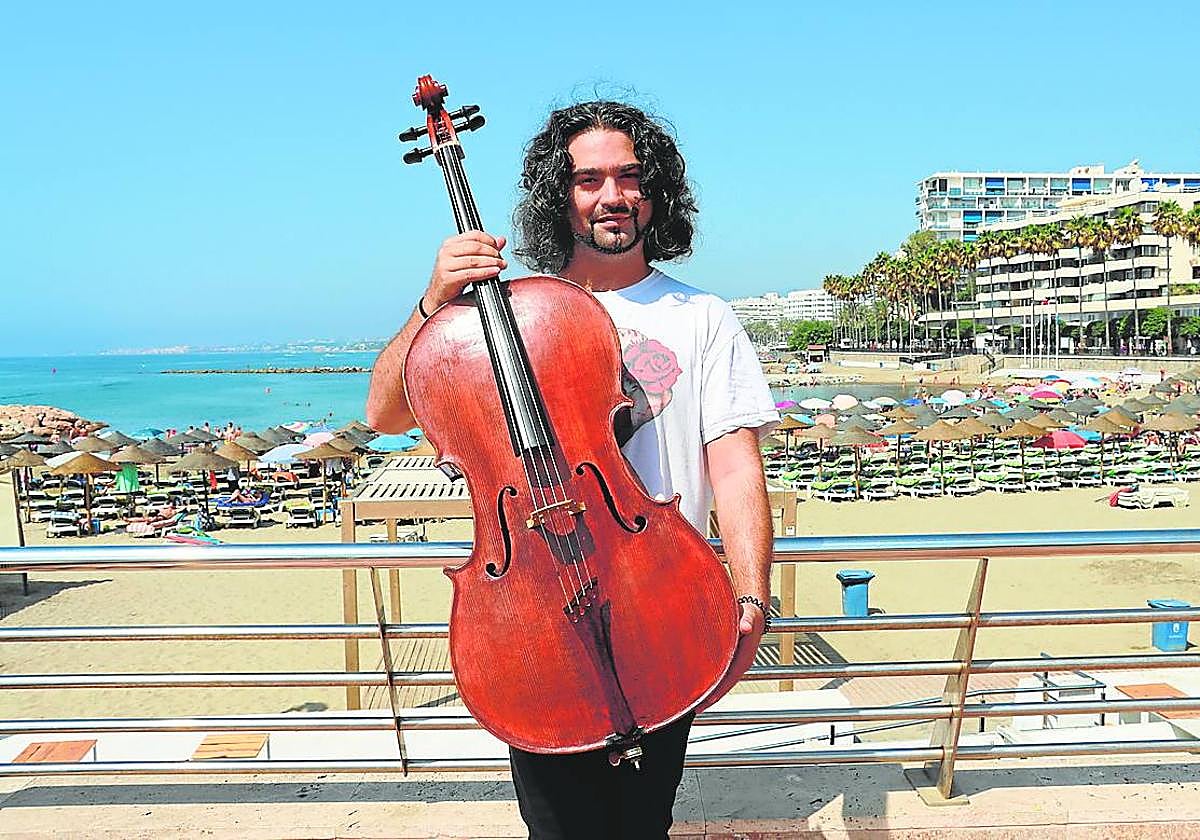Tin Fernández, the flamenco artist who loves the cello
Against all odds, this musician of Gypsy origin turned necessity into virtue and today delights audiences after honing his skills as a street musician
David Lerma
Friday, 8 September 2023, 13:28
At 35, Tin Fernández hasn’t had it easy. When he was just 25 he left Torre del Mar, where he worked at markets with his family selling clothing, and started to sing and play the cello in the Plaza de África in Marbella after getting a licence from the town hall.
“I attended the conservatory up to a professional level, which was a total of nine years,” explains the musician. He acknowledges that his love for the cello was never fully understood in his surroundings, especially in the orthodox world of flamenco. Eventually, after many successful performances in hotels and beach clubs on the Costa del Sol, Tin Fernández met guitarist Daniel Casares last spring in Marbella, where they performed at the Hospitalillo, and they will collaborate on his upcoming single.
“I am a Gypsy, and in my culture, the norm is guitar, singing, and dancing. I was born a musician; I just wanted to learn. I entered the music conservatory at the age of 11, and I didn’t care whether it was the guitar, piano, or flute. I said no to the guitar because my brother already played it.” Although he passed the entrance exam, priority was given to children who had completed the elementary courses. “They only gave me a place for the instrument that nobody wanted, the cello.” His father didn’t approve, but his uncle Manolo, his great supporter, encouraged him to learn to play the instrument that no one else wanted to study.
“I wasn’t bored playing the cello. My uncle told me it’s an instrument not everyone plays. Flamenco is in your blood: study, learn classical music, and when you play your flamenco, do it with the cello.” In this regard, there’s not much competition, except for Vatio, a Czechoslovak cellist who introduced him to the secrets of the electric cello and whom he considers his master.
“The cello adds depth and delicacy to flamenco while also providing a strength that other instruments can never achieve. The guitar is the most important in the structure of flamenco, but in a seguiriya or a soleá, the sound produced by the cello, with the continuous resonance of the strings, is something the guitar cannot replicate,” he argues.
The only album he has released, Alma Bohemia on which he collaborated with Juanito Heredia, the percussionist from Chambao, clearly reflects his worldview. “Yes, I am a bohemian,” he proudly states. “My father wanted to marry me off at the age of 20 to a cousin. I refused.” He has not spoken to him for ten years.
The opportunity to record with guitarist Daniel Casares fills him with pride.
“I need to prepare myself a bit because I feel a little shy,” he told Juanito Heredia when he encouraged him to meet Daniel. Initially, they planned to record during the lockdown, a period during which he also composed his own songs, but they will finally do it next month.
“He said to me, ‘I really like what you do. It’s very challenging, and I admire you for it’,” Tin Fernández recalls Daniel Casares saying to him earlier this year in Marbella. Finally, they will record together on the 13, 14, and 15 September.
“It’s a bulería jazz. Dani can cover far more musically than a guitarist who solely focuses on flamenco,” he adds.
